CSotD: 55 Years Back
Skip to commentsGot an early doctor’s appt today — nothing critical, just the only time it could happen — so here’s a look back to 1966. Fifty-five isn’t a round number, but it’s a Sunday in a pretty good era.
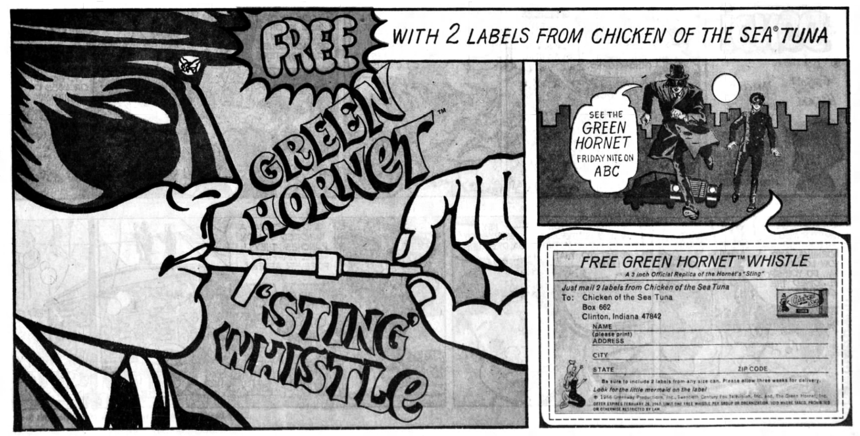
Our comics will begin right after this word from Chicken of the Sea. I’m not sure there’s much of a connection between tuna and Green Lantern, but I guess Aquaman didn’t have a whistle. And I never saw the show, since we didn’t have an ABC affiliate anywhere around — It was still known as the “Almost Broadcasting Company” in those days.
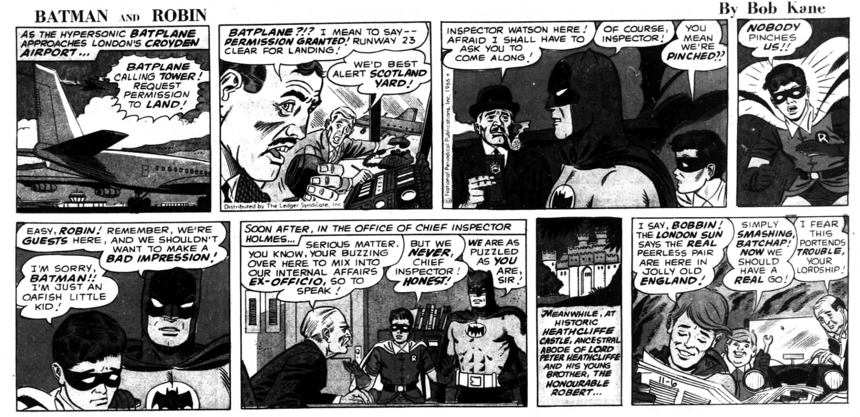
I note, however, that the Batman comic strip seems a mashup of the serious, classic comic book and the campy TV show which began that year.
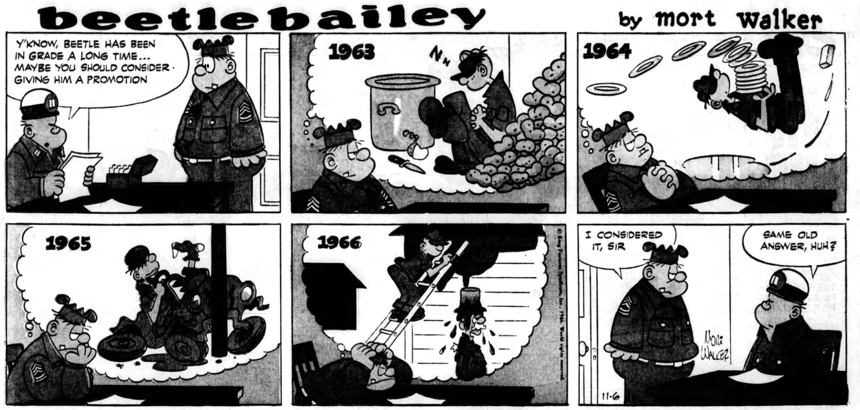
Beetle Bailey, by contrast, had started in 1950 and so was just about my age. Oddly enough, he still is.
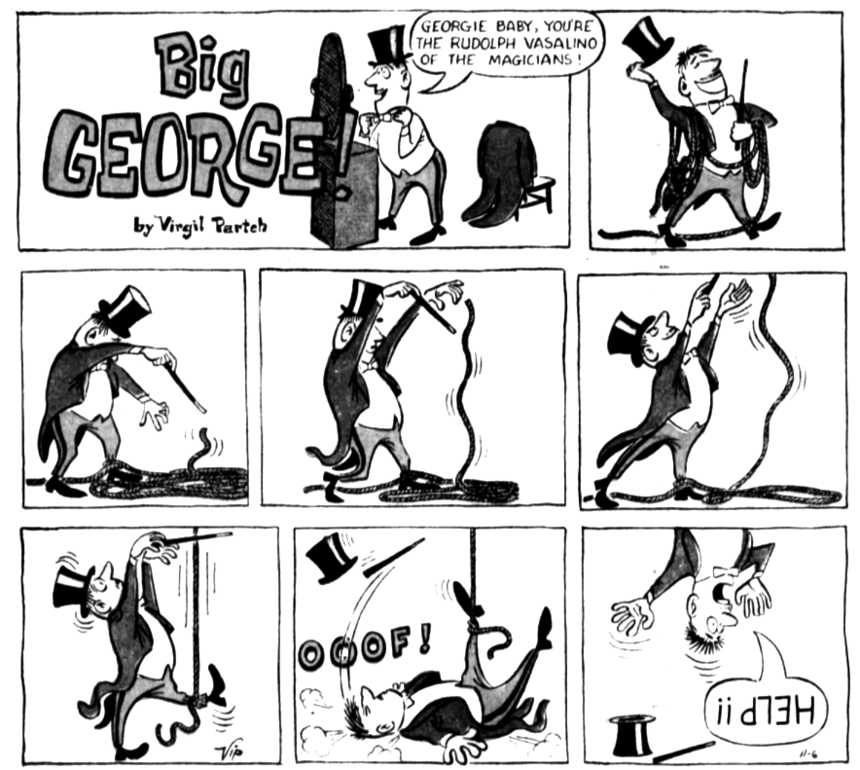
My dad cartooned for a hobby, so Vip was a big presence in our house, though Big George wasn’t in our local paper. Not sure multi-panel work was his strong suit, but the art was nice.
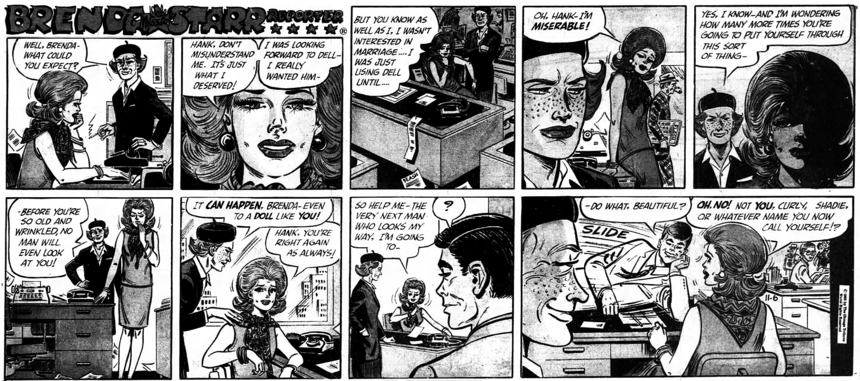
Lesbians hadn’t been invented yet, but I wonder if anybody wondered about Hank, or if they just saw her as the “sensible” type. Fact is, we had a girl in our class who we all knew was “sensible,” but she was our friend and we didn’t care a whole lot. Such were the times.
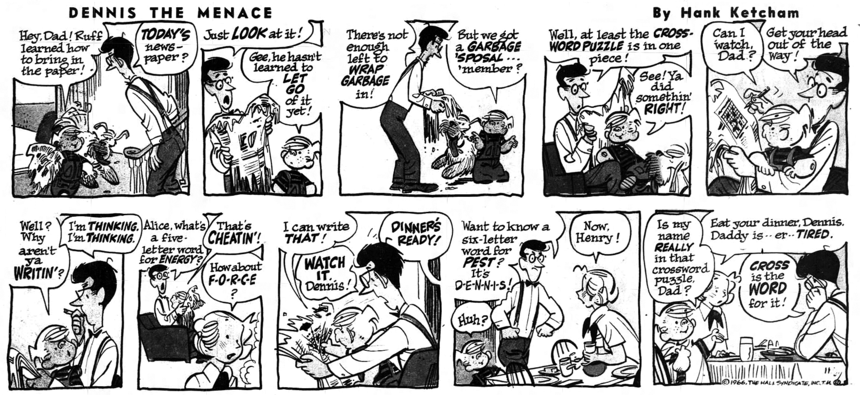
Dennis was also about my age, one of a flood of post-war cartoons, but he’d mellowed a lot since his early days and, looking back, his dad seemed like the brat in the family.
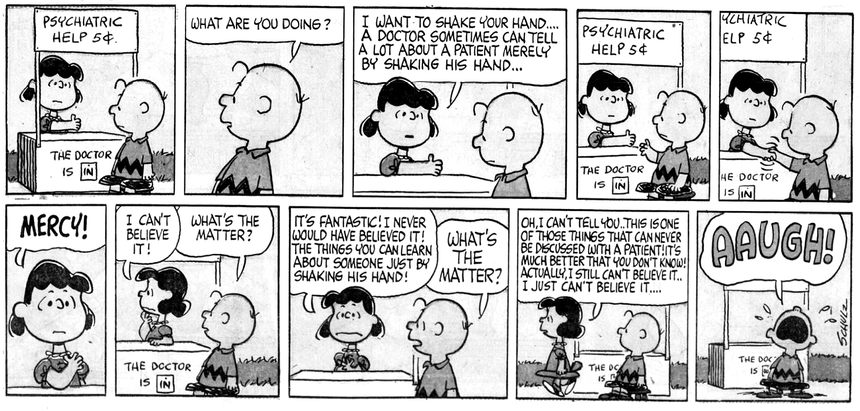
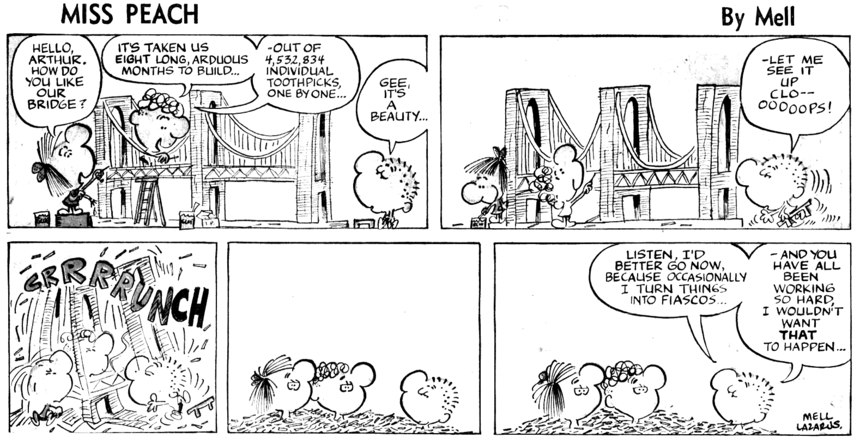
Which makes this a good time to slip in Peanuts (1950) and Miss Peach (1957). I particularly liked Miss Peach when it came along because the gags were kid-friendly, while Peanuts was really written for adults, at least until Snoopy began to take over the strip.
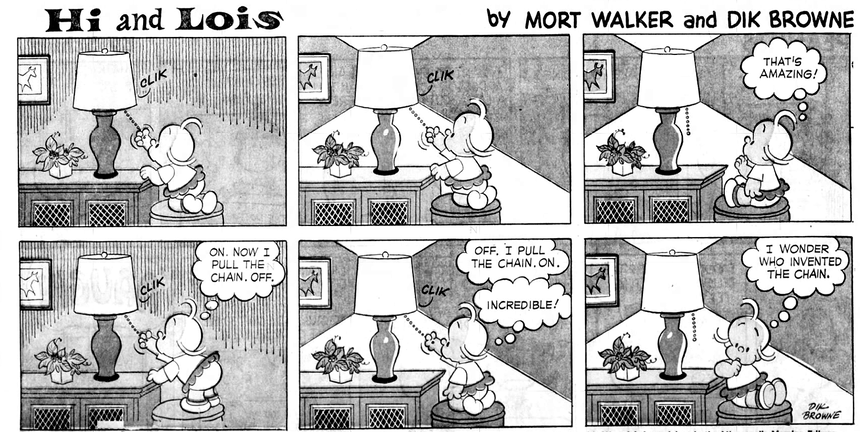
Hi and Lois was also pretty kid-friendly and this was one where every kid old enough to read it was old enough to get a chuckle at a younger kid.
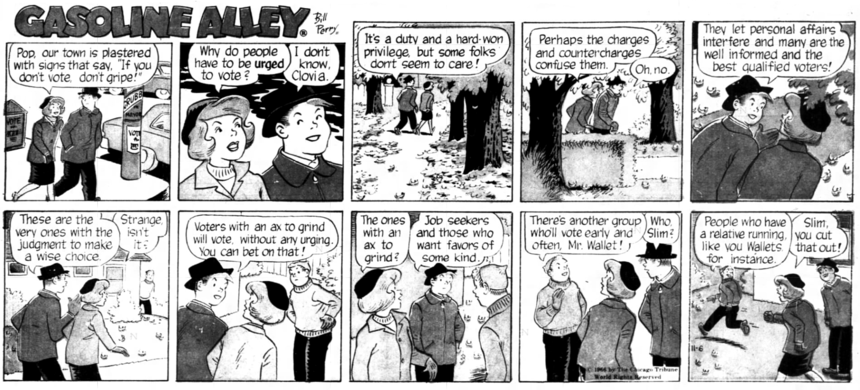
Gasoline Alley, by contrast, was more in, and for, my father’s generation. He was born close enough to the first appearance of the little foundling that his parents referred to him as Skeezix.
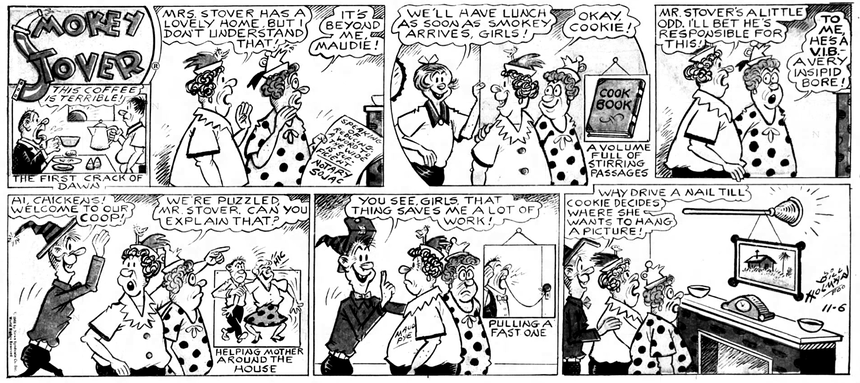
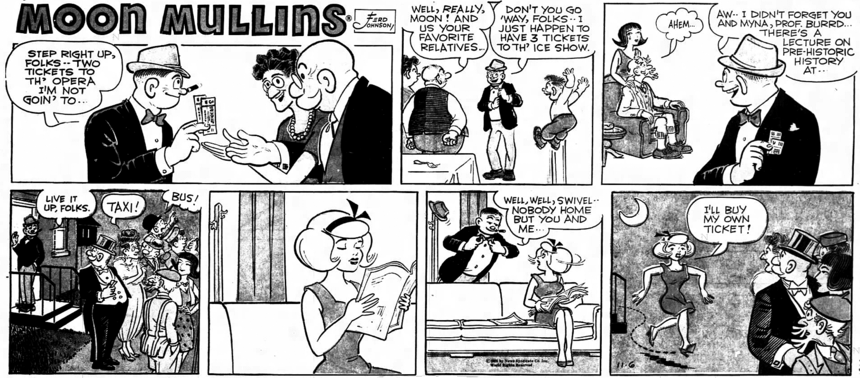
Which makes this a good time to slot in a couple of other oldies, Smokey Stover (1935) and Moon Mullins (1923). I note that Miss Swivel seems a bit ahead of her time. In those days, of course, a pretty girl who didn’t want to be chased around the desk was suspected of being sensible.
Dad used to work “Notary Sojak” into things from time to time, but I had no idea what he was talking about, Smoky Stover not being in our newspaper.
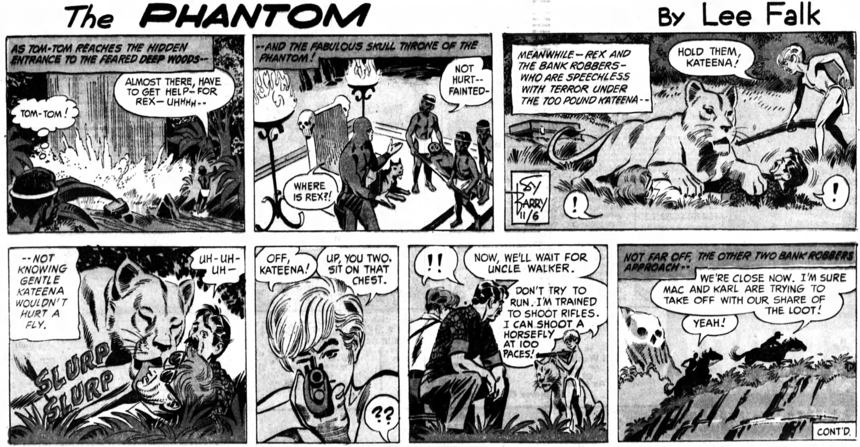
Dad also made something of a game of pretending to take The Phantom seriously, solemnly proclaiming something or other to be an “Old Jungle Saying,” mostly, I think, to annoy my mother, similar to the way he’d praise the Andrews Sisters, knowing she was a devotee of more serious swing.
“Phantom say let no man follow” became such a running gag in our family that I was surprised, in later years, to find people who really did take the strip seriously. But, then, the Andrews Sisters sold a lot of records.
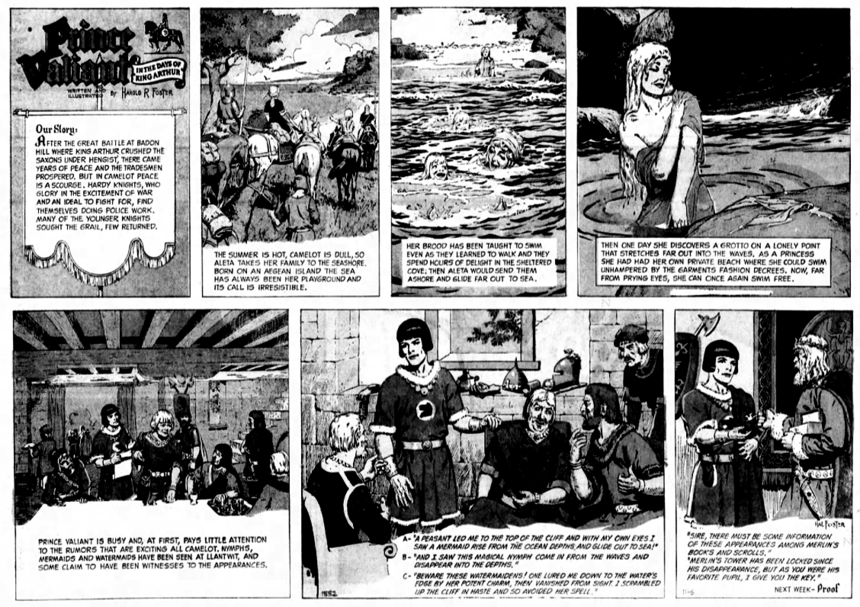
We were, on the other hand, required to take Prince Valiant seriously, not simply because Hal Foster was a brilliant artist and storyteller but because he lived down the road from my mother’s folks in Connecticut and welcomed neighborhood kids, including my uncle, into his studio to see how it all came together.
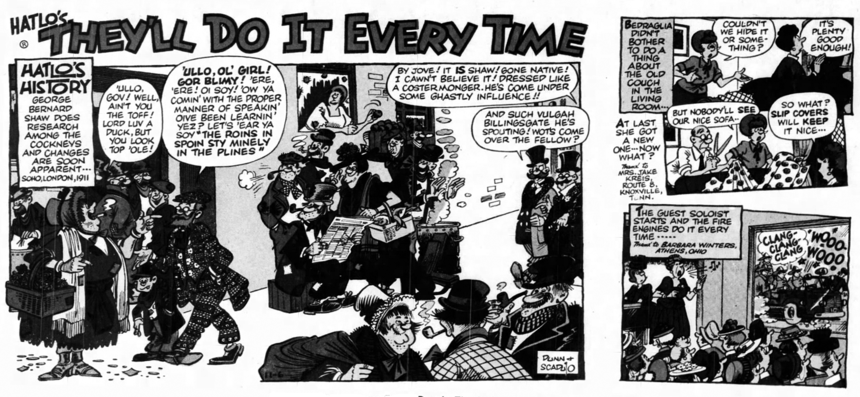
I’d forgotten “Hatlo’s History” but I always liked “They’ll Do It Every Time,” by this time the top survivor of a popular type.

I also liked Iodine, mostly because she was a wise-ass on a much higher level than Dennis Mitchell. Jimmy Hatlo had, by then, handed over both strips to Bob Dunn and Al Scaduto, but they maintained the flavor of the character.
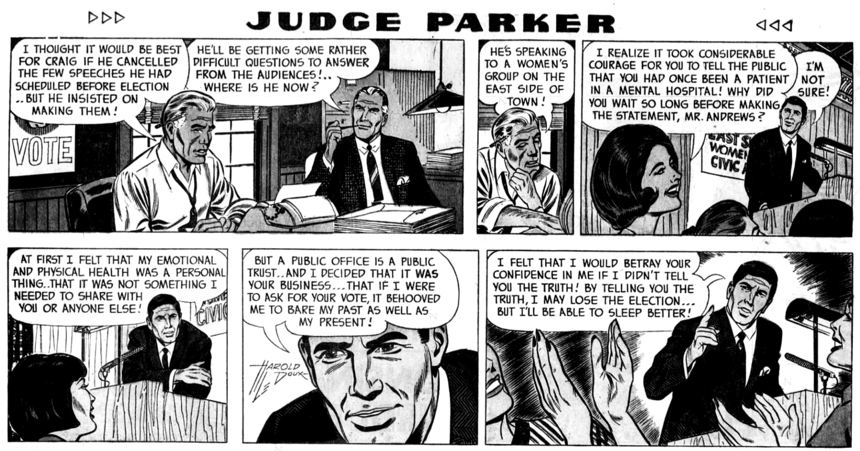
Interesting topic in Judge Parker, given that it would be another half-dozen years before Thomas Eagleton was outed as having suffered from depression and forced to drop off his spot as VP candidate on George McGovern’s ticket.
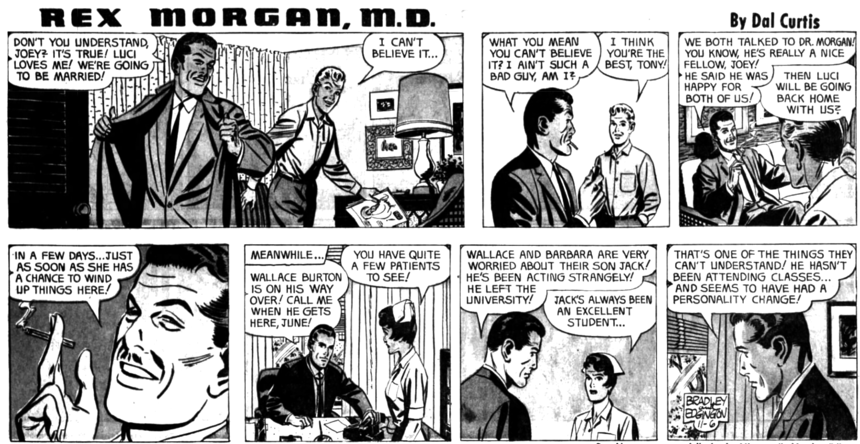


Rex Morgan was still an educational strip in those days, and this Sunday started a return to a topic he’d famously covered a few years earlier, but this time around with seemingly less Joe Friday-style hysteria, as we see in a couple of the dailies that extended the new arc.
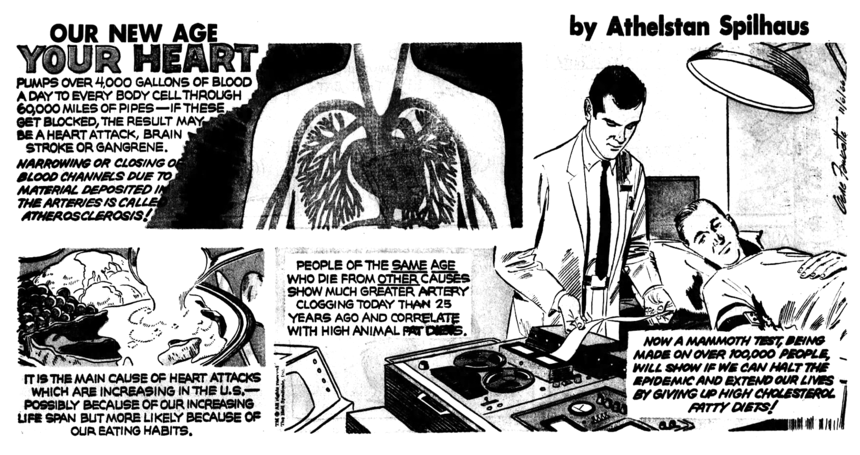
Though, when I say “educational,” I don’t mean as directly so as Athelstan Spilhaus’s strip. Spilhaus was something of a Neil deGrasse Tyson type, using his well-established expertise to inform the public, and this post-Sputnik effort was popular and well-done.
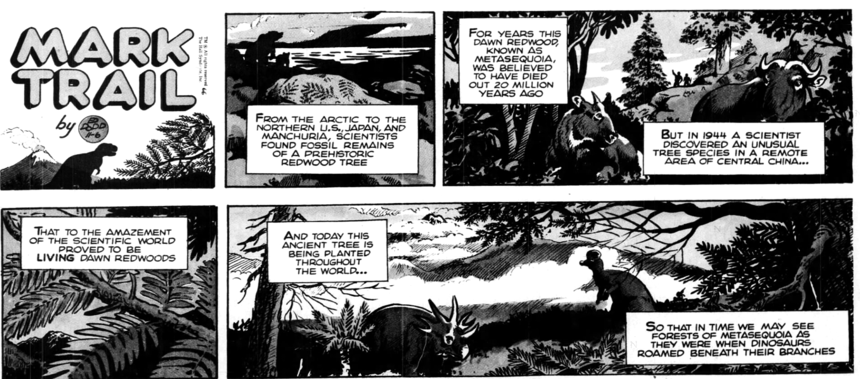
Sunday Mark Trail was also educational and, as a country kid who spent a lot of time in the woods, I appreciated the classic strip’s assumption that I wasn’t seeing a tree for the first time, even in a case in which we were all seeing this particular tree for the first time.
The update to this one being that, not only have the Chinese fostered it there, but there are three examples in Central Park’s Strawberry Fields section.

I suppose Pogo was also educational, but only if you paid close attention.
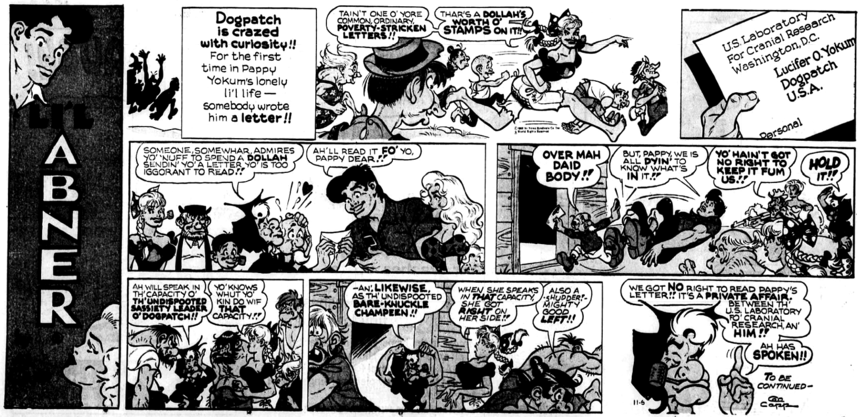
L’il Abner also offered social commentary, this being shortly before Al Capp went off the rails into Rush Limbaugh territory.

Speaking of going off the rails, I’ll confess I never had much affection for the Moon Maid storylines in Dick Tracy and, in fact, I remember the NYC kids at summer camp making fun of them. Apparently there was some radio host reading the funnies down there, who had to resort to gibberish for Moon Maid’s earlier faux-dialogue, which they found hilarious and not in a good way.

Mary Worth was pure soap opera and always had been. And still is, bless her heart, though she’s become more campy in recent years. The tut-tut in that penultimate panel is a classic judgmental-old-lady take, though she invariably proved to be right.
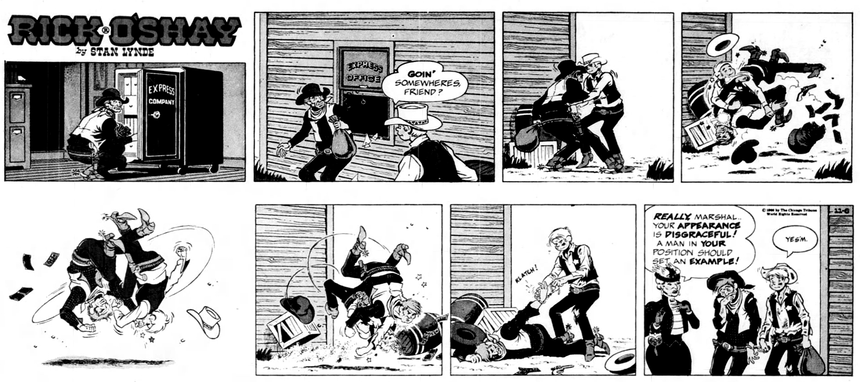
Finally, an appreciation of Rick O’Shay, a compact little Western that told short stories with graceful, attractive art that I always enjoyed, whether it starred Marshal O’Shay himself or the slightly sinister but philosophical gunslinger, Hipshot Percussion.
Comments 6
Comments are closed.